If you click on a link and make a purchase we may receive a small commission. Read our editorial policy.
The Marvel Marathon: Should we want to read every Marvel comic ever?
Reading every Marvel Comic is an intimidating, preposterous quest. So where do I sign up?

When I was in college, I helped found a sports broadcasting club, and while this meant tons of exciting play-by-play for D3 athletics, it also meant occasionally sitting alone in a dusty radio station producing baseball. The unenviable job of muting broadcasters to run station ID and advertisements is exacerbated by a game with the pace of Golden Age Turtle. Needless to say, I was in search of distractions.
One day I discovered the station had a small lending library, and I found my distractions in the form of Marvel Essentials collections, black-and-white reprints of Steve Ditko and Stan Lee’s Silver Age Amazing Spider-Man comics. I was enraptured. I couldn’t put the comics down, much to the dismay of my broadcasting partners when they realized I was too immersed in the adventures of Peter Parker to notice it was time for an ad break (oh the awkward wonders you’ll hear on college radio!).
I’d always had an affinity for superheroes, primarily built on the Fox Kids Spider-Man and X-Men animated series, and sporadic (but exhilarating) excursions to KB Toys, but I’d never really read the source material. So Amazing Spider-Man gave way to Silver Age Iron Man which gave way to Giant-Size X-Men, and on to Age of Apocalypse… and I couldn’t be stopped.
I had to read everything.

The Thrill of the Marvel Comics Quest
There's a purity to the enthusiasm of readers entering the grand Marvel challenge, an enviable abstention from pragmatism overridden by the feverish highs of newfound obsession. The love of the characters, the universe, and the grand legacy - a legacy which has now given rise to the MCU, the biggest entertainment vehicle in pop culture - outshines nearly all practical questions like "How many comics are there," "How long is this going to take," or "Do I need to see my family over the next decade"? When you’re in the throes of that nascent desire, these questions don’t matter. Much like the world devourer Galactus, all that matters is the hunger, the quest to consume it all.
Even apart from the pure joy of a massive shared universe story with so many tremendous highs - Jim Starlin’s Thanos saga; Frank Miller, Klaus Janson and David Mazzucchelli's Daredevil; the debut of Lady Stilt-Man - there’s a lot that appeals about reading everything. Zach Rabiroff, a freelance writer and former editor at ComicsXF, read every Marvel Comic and says "Some of these stories are just plain good, and (this is key) the ones that aren't become better by virtue of the fact that they're attached to the larger tapestry of the whole. It's a fictional world history embedded inside our actual world history, a saga is always the most gripping kind of story to read."
In the journey from 1961’s Fantastic Four #1 to present day, you’ll understand not only the history and continuity of these fictions, but the shape of American history as it manifests itself in Marvel through the decades. There’s also no better way to perceive the omitted histories of Marvel Comics, those non-canonized story arcs and creative teams that never make it on best-of lists, but nonetheless strike a chord, or could be picked back up in a new storyline. Douglas Wolk read every available Marvel Comic on his journey to author of All of The Marvels, and says, "One of the fascinating things about Marvel as a single story is that any part of it can use any previous part as history; the past is always showing up in the present."
For most newer readers, too, reading all of Marvel Comics sounds totally… possible! And why shouldn’t it be? When you want to know all there is of Star Trek, you watch every episode. Same goes for virtually all properties with tremendous fandom, regardless of media type. Reading every Marvel Comic simply sounds like the most sensible path towards complete understanding from beginning to end.
Better yet, we’re living within the first decade with the means of reading every Marvel Comic through the accessibility of Marvel Unlimited. Before the 2013 app launch (for the previous six years Marvel Unlimited was only available via a web reader), and the launch and expansion of the Marvel Unlimited catalog, reading options were limited to collected editions and back issue hunting of print runs. So barring access to the GDP of some independent nations and a private mansion library for storage, reading Marvel's full history was borderline impossible. That barrier is now effectively shattered.
The grand Marvel Marathon beckons.

How Many Marvel Comics Are There?
Great feats of endurance are generally attributed to triathlons (more Iron Man competition than Golden Avenger), but with the rise of binge culture experiences, consumers of media increasingly have their own great feats. Whether it's watching every MCU movie in a week, listening to Lou Reed's Metal Machine Music to completion, or reading the likes of Ulysses or Infinite Jest (which I've included in every article I've ever written as my just reward for such self-satisfied intellectual prowess), there's a great degree of accomplishment in conquering the great beasts of culture.
For comics, this usually takes the shape of conquering creative runs or eras. When I read and annotated every single tie-in for Marvel's 2015 Secret Wars, there was a glorious feeling of immersion, both the promise of escape into these fictions in their totality and explorative excursions into story that would reveal gem and empty dig alike. Going on a hundreds-of-comics quest is not dissimilar to a treasure hunt, except instead of riches you walk away with the rare ability to explain exactly how much Juggernaut likes Dazzler's albums.
There's also a sense of exclusive accomplishment - even if I'm aware that for unclear reasons "Man sits alone reading comic books" is not yet criteria for Nobel Prize recipients - primarily because visions of bursting through that finish line with arms held high often belie the reality that it’s time-consuming and hard as hell to get there.
It's absurdly difficult to calculate how many Marvel Comics there actually are (a bad sign for completionists!), or even what exactly counts as a Marvel Comic (what about the Ultimate Universe? Marvel's Star Wars comics? '70s Conan the Barbarian? Alf?), but if we just look at books inside the continuity of the Marvel Universe, we're approaching at least the 40,000 comics mark in 2022. If you read 20 comics a day (a healthy total!), it would take nearly six years to get through all of them. Even segmenting the Marvel Universe into more manageable totals, X-Men comics alone may exceed 13,000 and counting. Again, at 20 comics per day (consider for a moment actually doing this every day), you could read every X-Men comic in about two years.
All of this leads to the most common end state for a Marvel Marathoner: complete and utter exhaustion.

In my experience, even the most dedicated completionists burnout following the Silver Age ’60s and Bronze Age ’70s, as fatigue is exacerbated by Marvel’s escalating publication schedules. If you’re playing along with the digitized catalog of Marvel Unlimited, these surges are particularly pronounced in the '00s, particularly after the launch of the service and regular digital releases of comics became an industry standard. Marvel Unlimited has 2,490 comics released during the entire '70s; only 335 more than the years 2009 and 2010.

Challenges of Quality and Diversity
On the most basic level, as the Marvel Universe has expanded, so have the amount of characters, teams, and storytelling styles. This is great in terms of depth of story available to readers, but on the 'give me everything plan,' it also means I have to try and muster up interest in Alpha Flight beyond the occasional X-Men cameo or 'Snowblind' showcase. As Wolk puts it, "To read everything means reading a whole lot of comics you don't like to see how, or if, they inform the ones you do like. And part of the reason I did that is so you wouldn't have to." The further you get into the marathon, the steeper the slopes get, and the more likely you are to run into a Secret Wars II sized obstacle that drives you right over the edge of fraying sanity.
Likewise, readers from minority or marginalized communities are more likely to find stereotypes, downright harmful stories, and a severe absence of representation in older Marvel Comics.
Professor Jorge J. Santos Jr. is the author of Graphic Memories of the Civil Rights Movement: Reframing History with Comics, and teaches comic book related courses at every level. Regarding Marvel’s history of diversity, Santos Jr. says, "With the notable exception that was Black Panther, there simply weren’t many options for minority readers to latch on to. Maybe just the X-Men and their marginalization metaphors – even if the original cast was all white. The realities of the Comics Code Authority added an additional layer of obstacles, since you were forbidden from overt politics which makes it difficult to represent lives of marginal people who are constantly at the whim of said politics."
Santos Jr. credits the groundwork laid by creators like Stan Lee, Jack Kirby, Steve Ditko, and John Romita in speaking to all communities on issues like "poverty or grief or societal exclusion," but also notes that despite big missteps, more recent years show how Marvel’s "commitment to commenting on the real world of the reader primed them to allow the marginal people living in those worlds to begin speaking for themselves through comics."
Simply put, comics of the past decade have stylistically and tonally progressed, but so have perceptions of inclusivity and intended audiences. Santos views the continued expansion of diverse voices at every stage of Marvel’s publication process as key to the future. "Different communities have different narrative traditions. They tell stories and live lives differently from others – I want to see those approaches manifest in the comics themselves. But I truly believe that in writing something specific to you or your community, you tap into something universal, much like the original 1960’s comics (Spidey in particular cuz who doesn’t love Spidey??)."

So You're Telling Me There's A Chance
Even knowing all of that, I’m hesitant to dampen the excitement of a Marvel fan trying this hallowed climb for themselves. Having read thousands upon thousands of them myself, there's always a temptation to say, 'Trust me, you don't want to try to read everything.' But honestly, that's a depressing answer in this moment, too openly jaded and world-weary, a cynical boot stamping the fires of wide-eyed excitement. As a student voraciously reading stories of Living Brains and Goblins, I didn’t need a wisened veteran to tamp down my fervor; I simply needed a copy of what came next.
As Rabiroff puts it, "I know it's tempting to tell people not to do this, or make an attempt to warn them away from it, but why would I want to? The truth of the matter is, I think most people who make a deliberate decision to read tens of thousands of comic books have some idea what they're getting into, and if it seems like the kind of thing that might bring them joy...well, who am I to argue otherwise?"
I think a better approach is to channel our reading into a more targeted program, one that aims that commitment into an achievable quest. Wolk advises an interest-based strategy, free from the confines of chronology: "What you want to do is pick up something relatively recent that looks good to you--an issue or a single volume. If you like it, observe what parts of it refer or allude to other comics, and which of those references you're curious about. Then look those up. Go forwards and backward in time; look at other work by creators whose work is important to you. Get a sense of what you enjoy and what you don't."
Personally, I do crave the structure of 'chronological order' (I’d never survive a day as Kang!), but I agree with Wolk regarding the dangers of burnout. It took a few years of reading as much of the comics 'canon' as I could before I attempted the full Marvel history in earnest. To make it less solitary, I started Comic Book Herald's My Marvelous Year reading club in 2016, and relaunched it as a podcast in 2019, where I'm now lucky enough to share the experience with a few thousand readers a week. My recommended approach in My Marvelous Year is reading year-by-year through Marvel history, from origins to today, but only through curated selections of the 10 most essential storylines of each year. Naturally, readers craving more of a particular selection (likely candidates include Chris Claremont’s X-Men, Walt Simonson’s Thor, or every appearance of Big Wheel) can expand from there.
I'll be the first to admit, that hunger I felt reading Ditko / Lee Spidey comics has dissipated as I've consumed this universe in whole, but then again, isn't that the point of sustenance? And even now, with thousands upon thousands of stories swimming in the recesses of my memory, I'm in love with this world's capacity for surprise. Every time I think I know it all, I uncover a series I haven't read or hadn't even heard of. Just in 2022, I've found tremendous joy in first reads through Moon Knight: Scarlet Redemption by J.M. DeMatteis and Ron Garney, Doctor Strange, Sorcerer Supreme by J.M. DeMatteis and Mark Buckingham, and Man-Thing (1997-98) by J.M. DeMatteis and Liam Sharp. (Related: J.M. Dematteis' contributions to Marvel in the '90s are deeply underrated!)
Either way, with some strategy and purpose, the journey can feel less like homework and more like the adventure fans intend to have. According to Rabiroff, "I know that when all is said and done, and for all the hideous quantity of time I spent on it, I've never felt cause to genuinely regret reading all those comics. Matter of fact, it was fun."
Follow Popverse for upcoming event coverage and news
Find out how we conduct our review by reading our review policy
Let Popverse be your tour guide through the wilderness of pop culture
Sign in and let us help you find your new favorite thing.





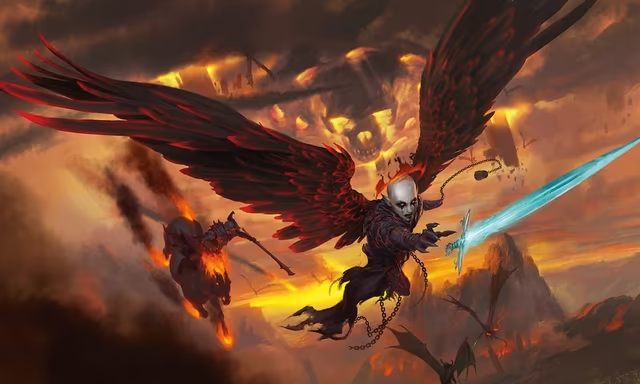
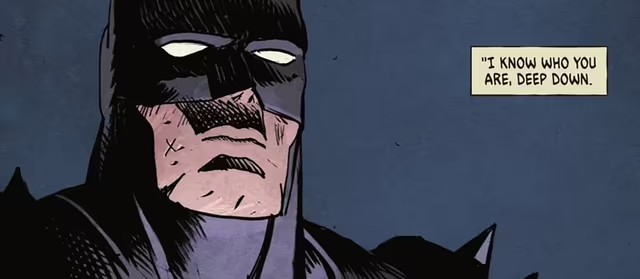
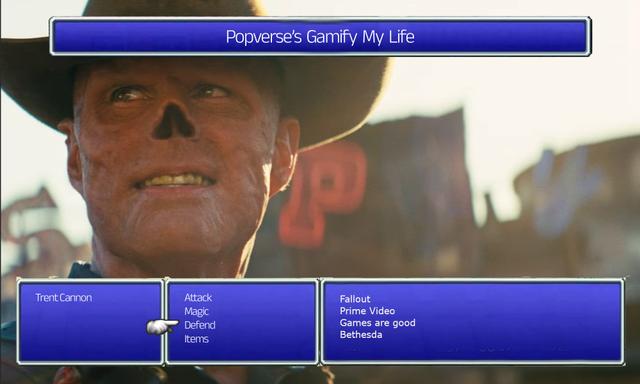
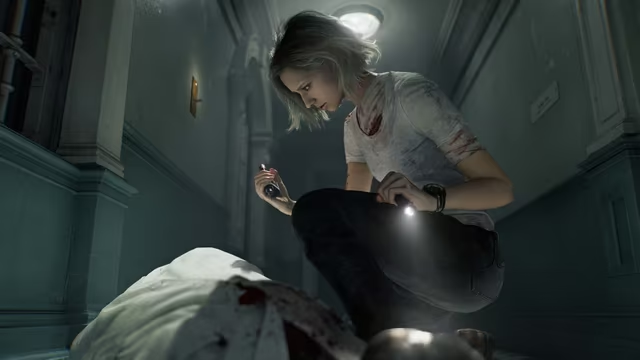
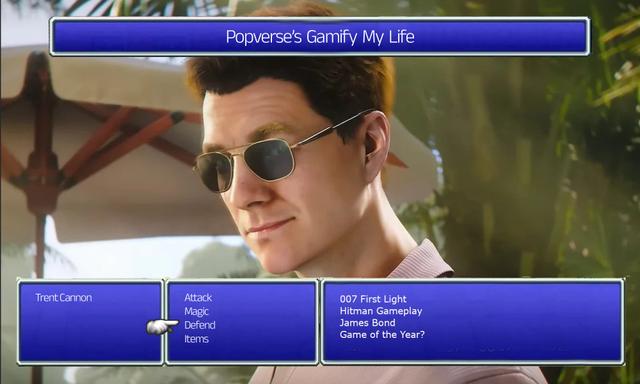






Comments
Want to join the discussion? Please activate your account first.
Visit Reedpop ID if you need to resend the confirmation email.